According to Lieutenant Colonel, Doctor, and criminology expert Dao Trung Hieu, the development of artificial intelligence (AI) has profoundly changed how humans create, receive, and verify information. Technologies such as deepfake, synthesized voices, and artificial images have blurred the lines between truth and falsehood like never before.
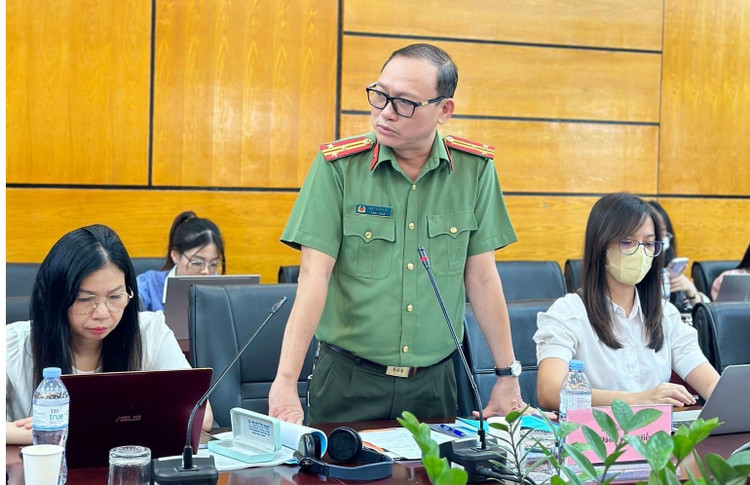
According to Europol statistics (2024), approximately 90% of current online content contains AI-generated elements to varying degrees, with 15% showing signs of deliberate forgery.
In Vietnam, the Ministry of Public Security has recorded a series of cases where criminals have used AI to impersonate relatives, bank officials, or government officials in order to steal assets, with some cases resulting in losses of tens of billions of dong.
The worrying aspect is not just the material damage, but the erosion of social trust, the foundation of all human relationships. When the truth can be reconstructed, trust, which is the basis of all social relationships, has become the first target of attack.
"These phenomena are not simply a transformation of the tools of crime, but a reshaping of the space for criminal behavior, with entirely new characteristics: intangible, cross-border, anonymous, and self-taught," Lieutenant Colonel Dao Trung Hieu stated.
The transformation of criminal behavior structures in the AI era.
Lieutenant Colonel Dao Trung Hieu stated that crime in the AI era is no longer limited by physical space. Criminal acts are carried out through data models, algorithms, and automated generation systems, allowing individuals or organizations to falsify the authenticity of any type of information.
While in traditional crime, physical evidence (evidence, crime scenes, witnesses) is the primary basis, in high-tech crime, digital evidence is the key. AI enables criminals to achieve two dangerous capabilities: synthetic reality, which makes the recipient believe in something that doesn't exist, and attribution erosion, which makes tracing the origin of the act difficult.
From a criminological perspective, a change in the structure of the four elements of a crime can be observed:
Firstly, the subject is no longer a single individual but can be an automated system, or a group of people controlling it remotely;
Secondly, the object of infringement is not just property, reputation, or data, but social trust – an intangible value that is fundamental in importance;
Thirdly, the means of committing crimes are programmed, self-learning, difficult to control, and can be replicated indefinitely;
Fourth, the social consequences extend beyond economic losses, impacting psychology, morality, and national security.
"Thus, artificial intelligence not only assists humans in creativity and production, but also restructures deviant behavior, making the concept of 'digital criminology' a new research direction in modern criminal science ," Mr. Hieu said.
Shifting from traditional investigation to investigation in the data space.
Mr. Hieu argued that the emergence of AI-powered crimes forces investigative agencies to innovate their working models. Instead of investigating after an event, they need to investigate in parallel with the data, collecting and analyzing the flow of information as the act is taking place.
Techniques such as AI trace analysis are being researched, allowing for the retrieval of characteristics of each generation pattern, similar to "digital fingerprints" in digital forensics.
In Vietnam, operational units of the Ministry of Public Security have collaborated with technology companies to build a database of AI-generated voice, facial, and video recognition samples.
Furthermore, the legal infrastructure also needs to be improved. Adding the crime of "using artificial intelligence to commit crimes" to the revised Criminal Code is necessary, and there must also be specific regulations regarding the responsibilities of owners and operators of AI systems.
More importantly, we need to shift from a "tracking down the culprit" mindset to a "proactive prevention" mindset. In an era where a fake video can spread faster than an official announcement, the ability to respond quickly and coordinate effectively among stakeholders, including the government, businesses, and the community, becomes crucial.
Digital immunity, the "antibodies" in the AI era.
One concept emphasized by Lieutenant Colonel, Doctor Dao Trung Hieu is "digital immunity," which refers to society's ability to recognize and react to fake information. To build digital immunity, he believes three groups of solutions are necessary.

Firstly, we need to build a flexible and evolving legal framework that ensures a balance between control and innovation. Laws should not "frame" AI, but rather be flexible to adapt to the rapid changes in technology, while also ensuring the principle of dual responsibility – individuals or organizations using AI must be accountable for the products they create.
Secondly, establish a national identification mechanism for AI-generated content through digital provenance standards (AI watermarks, provenance codes). Digital platforms should be required to label or verify AI-generated content, helping users distinguish between genuine and fake content from the moment they receive it.
Third, education and social media are long-term lines of defense. Laws can regulate behavior, but only education can regulate awareness. Integrating knowledge about data security, skills in identifying fake news, and technological ethics into general education and university curricula will create a class of citizens with "digital antibodies," a sustainable foundation for a safe society.
According to Mr. Hieu, artificial intelligence is not only a technological advancement, but also a test of humanity's ethics and legal standing. When machines can recreate truth, humans are forced to learn how to protect their beliefs—the only thing that cannot be programmed.
Vietnam needs to proactively take the lead by building a flexible legal framework, strengthening public-private cooperation in preventing AI-related crimes, and promoting digital immunity education for its citizens.
"A safe society in the age of artificial intelligence is not one with the strongest firewall, but one with the most vigilant citizens. If data is the fuel of the digital age, then trust is the engine. Without trust, any system collapses, no matter how advanced the technology," the criminologist emphasized.
On October 25th, the signing ceremony of the United Nations Convention against Cybercrime, themed "Combating Cybercrime - Sharing Responsibility - Towards the Future," took place in Hanoi. The Hanoi Convention is considered a significant step in building the first global legal framework to coordinate joint efforts to combat cybercrime. This is a historic milestone not only for the international community but also affirms Vietnam's role and position on the international stage.
Source: https://khoahocdoisong.vn/cong-uoc-ha-noi-chuyen-gia-de-xuat-mien-dich-so-truoc-thach-thuc-ai-post2149063689.html








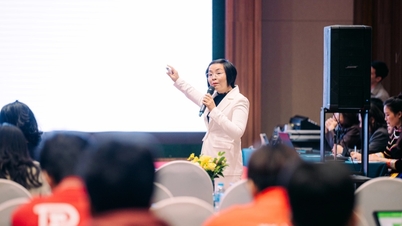

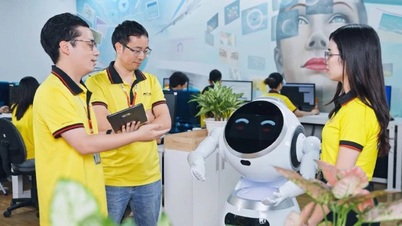


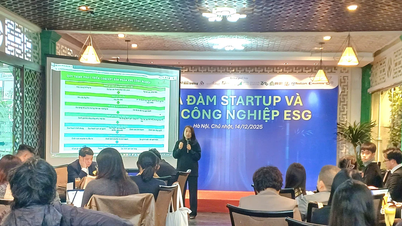













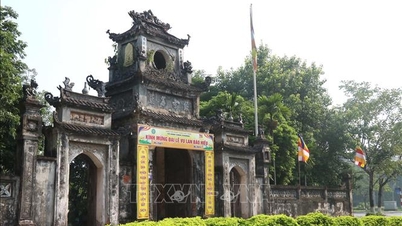











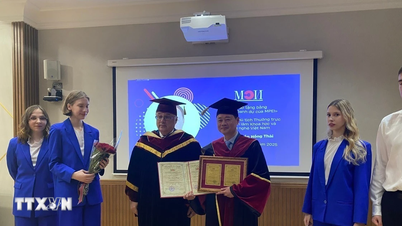
































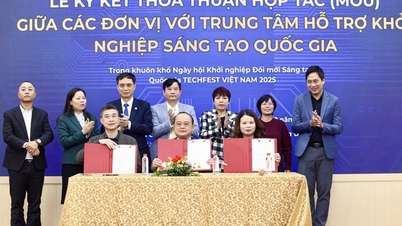

























Comment (0)